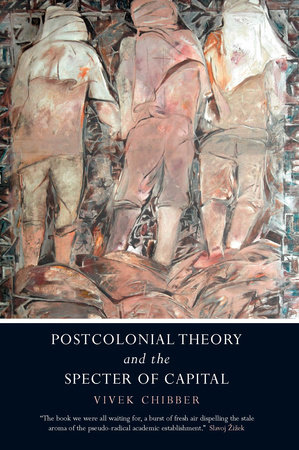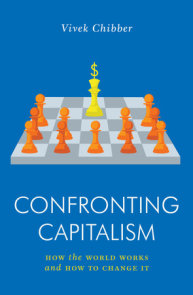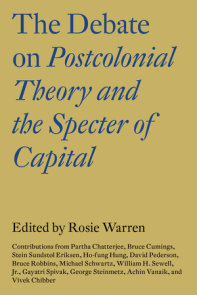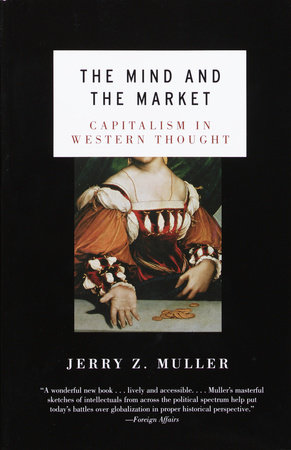

Postcolonial Theory and the Specter of Capital
By Vivek Chibber
By Vivek Chibber
By Vivek Chibber
By Vivek Chibber
Category: Domestic Politics | World Politics | Philosophy | Psychology
Category: Domestic Politics | World Politics | Philosophy | Psychology

-
$34.95
Mar 12, 2013 | ISBN 9781844679768
-
Feb 25, 2014 | ISBN 9781781682555
YOU MAY ALSO LIKE

Enlightenment Volume 2
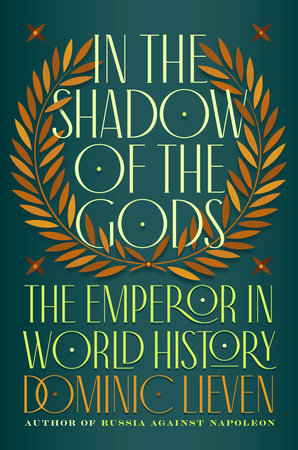
In the Shadow of the Gods

The Way of the World
Praise
“With its focus on cultural identities and mixtures, postcolonial theory ignored the larger context of capitalist relations and thus limited its scope to Western academia where it excelled in the game of growing and profiting from the liberal guilt feeling. Chibber’s book simply sets the record straight, bringing postcolonialism down from cultural heights to where it belongs, into the very heart of global capitalist processes. The book we were all waiting for, a burst of fresh air dispelling the stale aroma of pseudo-radical academic establishment.”—Slavoj Žižek
“In this scrupulous and perceptive analysis, Vivek Chibber successfully shows that the ‘universalizing categories of Enlightenment thought’ emerge unscathed from the criticisms of postcolonial theorists. He shows further that—perhaps ironically—Subaltern Studies greatly underestimates the role of subaltern agency in bringing about the transformations that they attribute to the European bourgeoisie. Chibber’s analysis also provides a very valuable account of the actual historical sociology of modern European development, of Indian peasant mobilization and activism, and much else. It is a very significant contribution.”—Noam Chomsky
“In this outstanding work—a model of clarity in its architecture and argumentation—key theorists of the ‘Subaltern’ and of postcoloniality have met their most formidable interlocutor and critic yet. Chibber’s critique of postcolonial theory and the historical sociological studies associated with it is, at the same time, a vigorous and welcome defense of the enduring value of certain Enlightenment universals as an analytical framework to both understand and radically change the world we live in.”—Achin Vanaik
“Vivek Chibber has written a stunning critique of postcolonial theory as represented by the Subaltern Studies school. While eschewing all polemics, he shows that their project is undermined by their paradoxical acceptance of an essentially liberal-Whig interpretation of the bourgeois revolutions and capitalist development in the West, which provides the foundation for their fundamental assertion of the difference of the East. Through a series of painstaking empirical and conceptual studies Chibber proceeds to overturn the central pillars of the Subalternists’ framework, while sustaining the credibility of Enlightenment theories. It is a bravura performance that cannot help but shake up our intellectual and political landscape.”—Robert Brenner
“Postcolonial Theory and the Specter of Capital is a must-read book for students of comparative politics and social theory. Vivek Chibber presents a forceful challenge to the Subaltern Studies school and to postcolonial theory more broadly. Arguing with great clarity, Chibber raises fundamental objections to their ideas about capitalism, power, and agency, and presents an alternative account of these ideas. Most fundamentally, he rejects the fundamental division between ‘East and West’ associated with postcolonial theory and defends the ‘universalizing categories of Enlightenment thought.’ This is a major contribution that is bound to reshape debate on these important issues.”—Joshua Cohen
“In this book, Vivek Chibber has carried out a thoroughgoing dissection of Subaltern Studies. Like a highly skilled anatomist, he lays bare the skeleton, the nervous system, the arteries and veins of this school … In the process the reader is also exposed to the nitty-gritty of a materialist historiography.”—Amiya Kumar Bagchi
21 Books You’ve Been Meaning to Read
Just for joining you’ll get personalized recommendations on your dashboard daily and features only for members.
Find Out More Join Now Sign In








